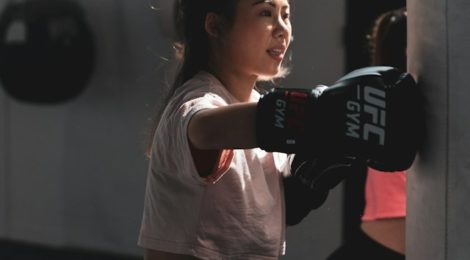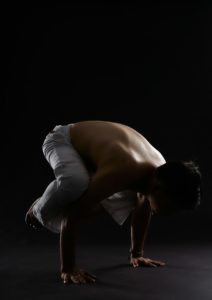
Finding Strength Post-Trauma with Mixed Martial Arts
From YouTube star Jake Paul to A-list actor Tom Hardy, mixed martial arts (MMA) has attracted the participation of individuals from all walks of life, and its reach and popularity have spread worldwide. MMA is evolving to be widely recognized through its various forms such as Brazilian Jiu Jitsu, Wrestling, and Muay Thai. Why is this sport gaining such popularity?
MMA offers multiple benefits both physically and mentally: cardiovascular health, problem solving skills, mood and confidence, and social skills. MMA also aims to instill emotional stability and assertiveness through discipline and awareness, all of which can help build mental focus and clarity.

MMA is gaining recognition as a form of holistic, non-pharmaceutical therapy for individuals who have experienced trauma. It serves as a medium for individuals to express their emotions. And its movements are designed to aid in self-defense, which can build confidence.
A common symptom associated with traumatic experiences is dissociation, becoming disconnected and out of touch with the present moment. MMA encourages individuals to stay present. The sport also incorporates grounding exercises, such as meditation and deep breathing, all helpful when coping with dissociation. Emphasizing the mind-body connection can help bring awareness back to the present moment.

We spoke with Theodora Pistiolis, a Toronto-based female martial arts fighter and owner of the Hook Up Muay Thai Gym. While Pistiolis initially began her Muay Thai journey 30 years ago for fitness purposes, she eventually fell in love with the physical and emotional empowerment the sport provides. Her decision to open the gym was helped along by an ambition to empower her daughters and welcome women into the often male-dominated MMA space.
We interviewed Dean Siminoff, who has been practicing martial arts for the past 28 years and operates his own martial arts school. Through this school he began a program called Martial Arts for Justice (MAJ), an organization whose mission is to help victims of violence, slavery, and human trafficking through martial arts.
Siminoff’s MAJ organization emphasizes the importance of resilience in trauma recovery martial art training. They practice grounding exercises on top of training, such as meditation and breathing exercises, during which mantras are chanted to bring one back to the present and appreciate one’s individuality. For example, “I am strong, I am beautiful, I am loved.” Importantly, MAJ provides a safe environment for the participants, and the group setting can encourage positive social engagement. Participants benefit physically, mentally, emotionally and socially.
Siminoff has taken his passion of martial arts internationally, creating a program called Enhanced Resilience Training (ERT) which is based on Taekwondo and rooted in Polyvagal theory. He offers training to those with mental health conditions. In one of his largest ERT programs, Siminoff held a training that included up to 420 genocide widows in Rwanda from 2021-2022. He intends to offer the program to marginalized populations in Canada, such as the Indigenous people and those who have experienced domestic abuse.
-Jasleen Ghuman, Contributing Writer
Image Credits:
Feature: Logan Weaver at Unsplash, Creative Commons
First: Wee Lee at Unsplash, Creative Commons
Second: Madison Lavern at Unsplash, Creative Commons




As a mental health professional and martial arts participant I can attest to the amazing benefits for health and well being through physical activity so including MMA is another fantastic innovation. In my opinion a welcome addition to helping and supporting people with post trauma and other mental health issues. I would love to know if this is available in my county of Lancashire in England.